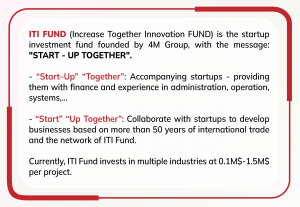Legal Implications for Startups Venturing into International Business Operations
Tuesday, 27/09/2022 09:00 (GTM +7)
Per One IBC, while maintaining operations abroad can offer several opportunities, it also entails overcoming various regulatory regimes. Therefore, startups must be well-prepared to navigate the complex legal landscape and comply with local laws and regulations to establish a successful presence in foreign markets.
Today with ITI Fund, let’s gain insight into the legal considerations that startups must prioritize to conduct business seamlessly and circumvent avoidable obstacles.
1. Procedures for Setting Up
Establishing a company varies depending on the specific requirements and regulations of the law in each country. Startups must ensure they register their business form and model in compliance with the host country’s laws and assume full responsibility for their activities. Failure to adhere to legal requirements, such as data protection, employee rights, or taxes, can pose significant challenges to business operations. Therefore, startups must prioritize compliance with the host country’s laws to avoid potential legal and financial consequences.
 Startups need to comply with the laws of their country and take full responsibility for their actions.
Startups need to comply with the laws of their country and take full responsibility for their actions.
The process of setting up a business varies by country. For instance, in New Zealand, it takes only one day with minimal paperwork, while in Panama and Chile, it can take up to two weeks with 6-7 procedures. In Portugal, it takes only five days with five functions; in Singapore and Hong Kong, it takes three days with three parts.
2. Protect Employees’ Rights and Data Safety
Startups in developed countries must comply with strict regulations regarding workers’ rights, including fair wages, holiday time, working hours, union membership, and insurance benefits. To ensure compliance, startups must clearly outline employees’ contractual obligations and responsibilities. Prioritizing the protection of workers’ rights benefits employees and contributes to the business’s long-term success and sustainability.
 Protecting workers’ rights benefits both employees and the business’s long-term success.
Protecting workers’ rights benefits both employees and the business’s long-term success.
In the era of Industry 4.0, data is often considered as valuable as gold, and the European Union has implemented strict laws to protect personal data. Businesses that receive or process personal data are subject to regulations and must obtain the data owner’s consent.
3. Contracts and Intellectual Property (IP)
Using the local language and ensuring legal validity is mandatory for all contracts, including labour, B2C, B2B, and supplier agreements. Startups operating in foreign countries may require legal experts to support their contracts being legally valid and enforceable, avoiding disputes and ensuring compliance with local laws.
 Foreign startups may need legal experts to ensure their contracts are legally valid, thus avoiding disputes.
Foreign startups may need legal experts to ensure their contracts are legally valid, thus avoiding disputes.
Developed countries highly value intellectual property rights. Trademarks, patents, design rights, and copyrights must be registered in the business’s market. For instance, a startup planning to sell in multiple European markets may consider applying for EU-wide protection or filing for individual countries if it operates in a limited field.
Contact:
itifund.com
(+84)90 998 3699
info@itifund.com
fb.me/ITIFund









